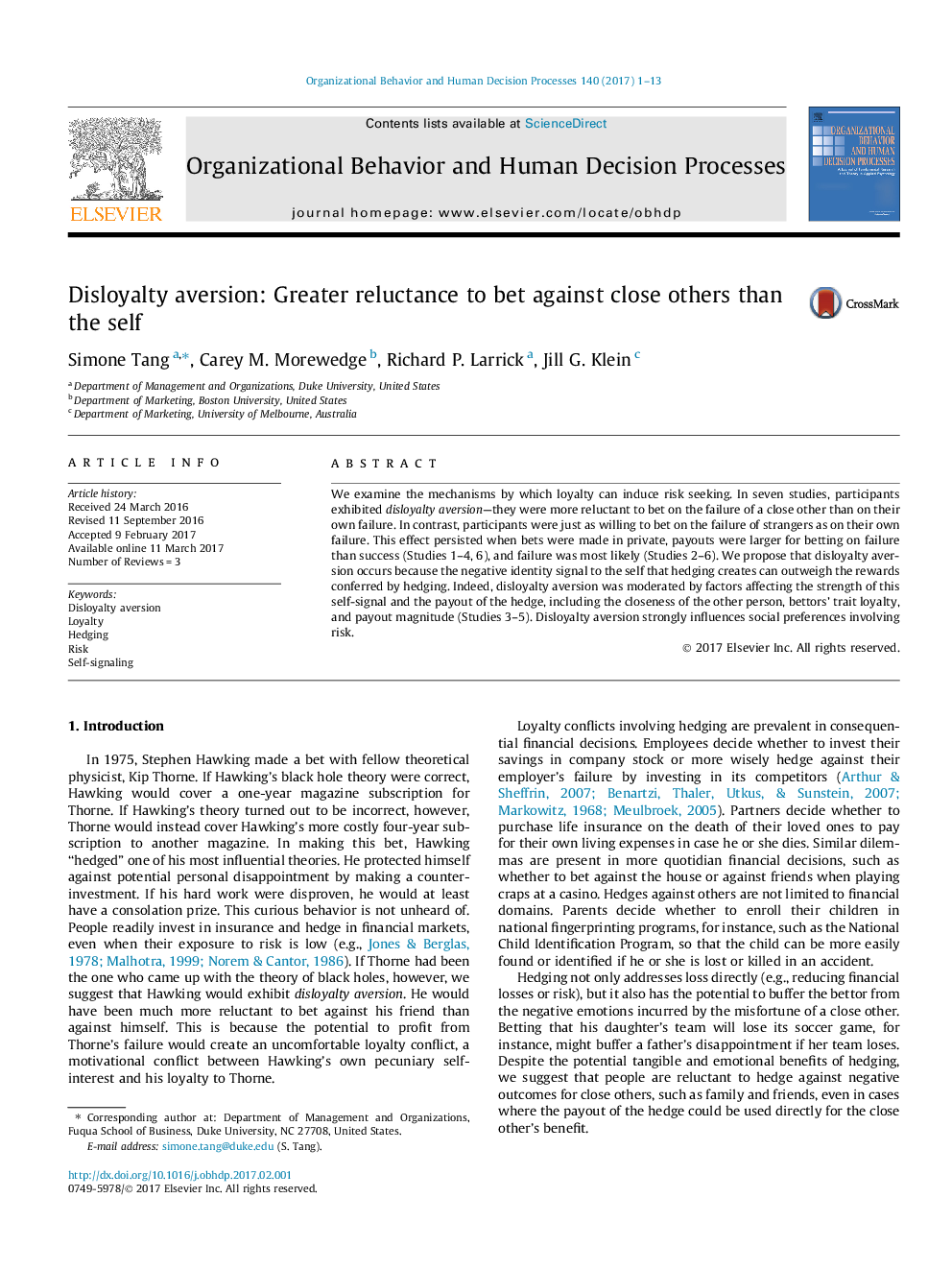| کد مقاله | کد نشریه | سال انتشار | مقاله انگلیسی | نسخه تمام متن |
|---|---|---|---|---|
| 5035322 | 1471841 | 2017 | 13 صفحه PDF | دانلود رایگان |
- People are more willing to bet on their own failure than a close other's failure.
- However, they are as willing to bet on their own failure as a stranger's failure.
- This occurs for bets that are incentive-compatible and made in private.
- Self-signaling that one is loyal underlies this tendency.
- This violates economic principles of self-interest and desire to minimize risk.
We examine the mechanisms by which loyalty can induce risk seeking. In seven studies, participants exhibited disloyalty aversion-they were more reluctant to bet on the failure of a close other than on their own failure. In contrast, participants were just as willing to bet on the failure of strangers as on their own failure. This effect persisted when bets were made in private, payouts were larger for betting on failure than success (Studies 1-4, 6), and failure was most likely (Studies 2-6). We propose that disloyalty aversion occurs because the negative identity signal to the self that hedging creates can outweigh the rewards conferred by hedging. Indeed, disloyalty aversion was moderated by factors affecting the strength of this self-signal and the payout of the hedge, including the closeness of the other person, bettors' trait loyalty, and payout magnitude (Studies 3-5). Disloyalty aversion strongly influences social preferences involving risk.
Journal: Organizational Behavior and Human Decision Processes - Volume 140, May 2017, Pages 1-13
